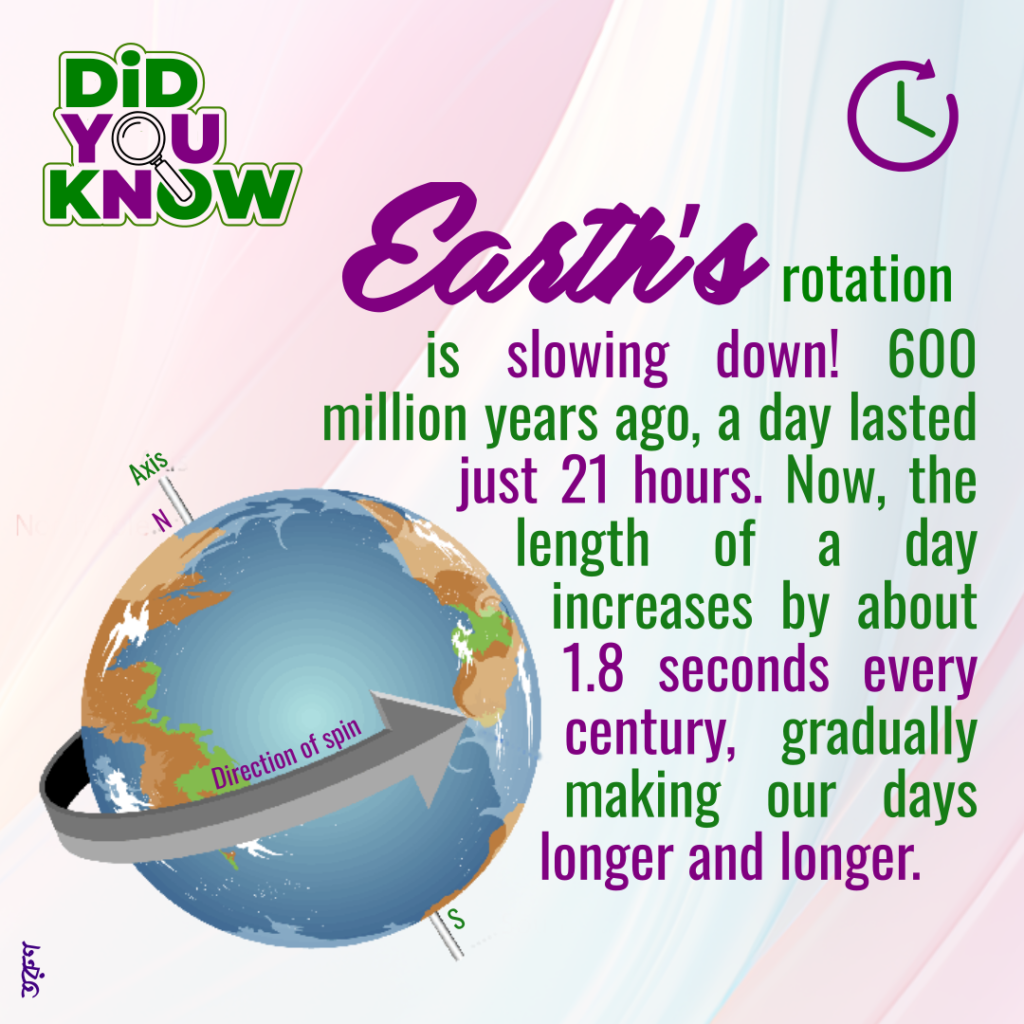

Earth’s Changing Rhythm
Earth’s rotation has been gradually decelerating over billions of years. Although it’s imperceptible on a human timescale, the length of a day on Earth has significantly increased. Around 1.4 billion years ago, a day lasted just 18 hours! This gradual slowing not only extends our days but has subtle impacts on Earth’s climate and geological processes over time.
The Science Behind Tidal Friction
The gravitational pull between Earth and the Moon creates ocean tides, and the resulting tidal friction acts like a brake, steadily slowing Earth’s spin. As this friction decelerates Earth’s rotation, it also pushes the Moon slightly farther away—currently at a rate of about 3.8 centimeters (1.5 inches) per year. This process, known as tidal dissipation, is a remarkable exchange of energy that shapes the long-term evolution of the Earth-Moon system.
The Long-Term Implications
In the distant future, Earth’s slowing rotation could lead to a tidal locking effect with the Moon, similar to how the Moon already shows the same face to Earth. This would mean one side of Earth would permanently face the Moon, resulting in a day that equals a lunar month. Though millions of years away, this potential scenario highlights the fascinating ways in which gravitational interactions sculpt planetary behavior across eons.
Fun Facts
- To keep clocks accurate, scientists add “leap seconds” to atomic time as needed to account for Earth’s slowing rotation.
- Ancient corals reveal that Earth had around 400 days in a year roughly 400 million years ago.
- Earth’s rotation rate is also influenced by factors like glacial melting, which redistributes mass and affects the planet’s spin.
Dive into the Mysteries!
Curious about what lies beneath the surface of everyday facts? Explore fascinating insights, natural wonders, and untold truths in our “Beyond the Surface” category. Discover more now!

We choose not to clutter your experience with ads. If you’d like to support us, consider showing some love by liking this post on X (Twitter).
Share this Post, Spread the Knowledge!
